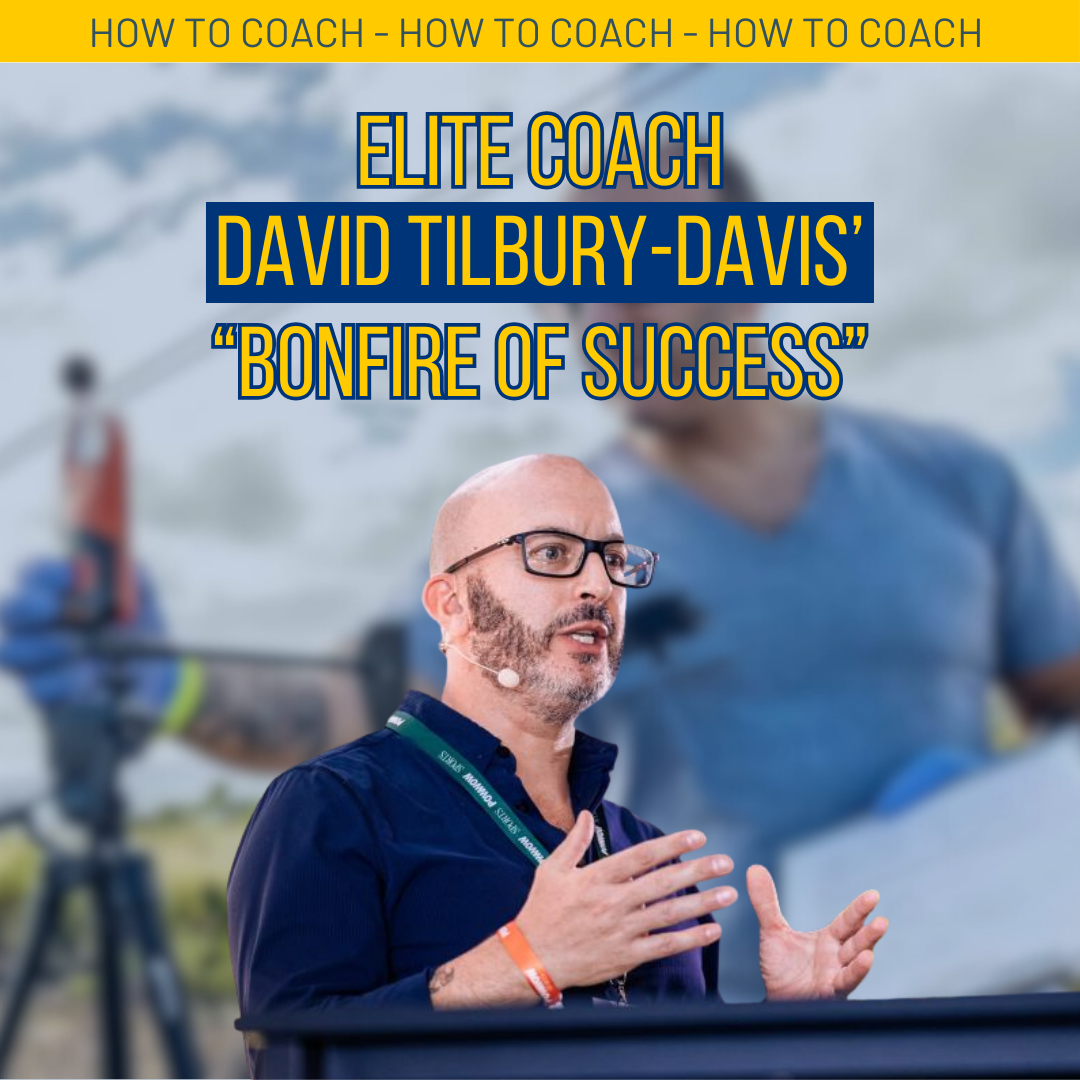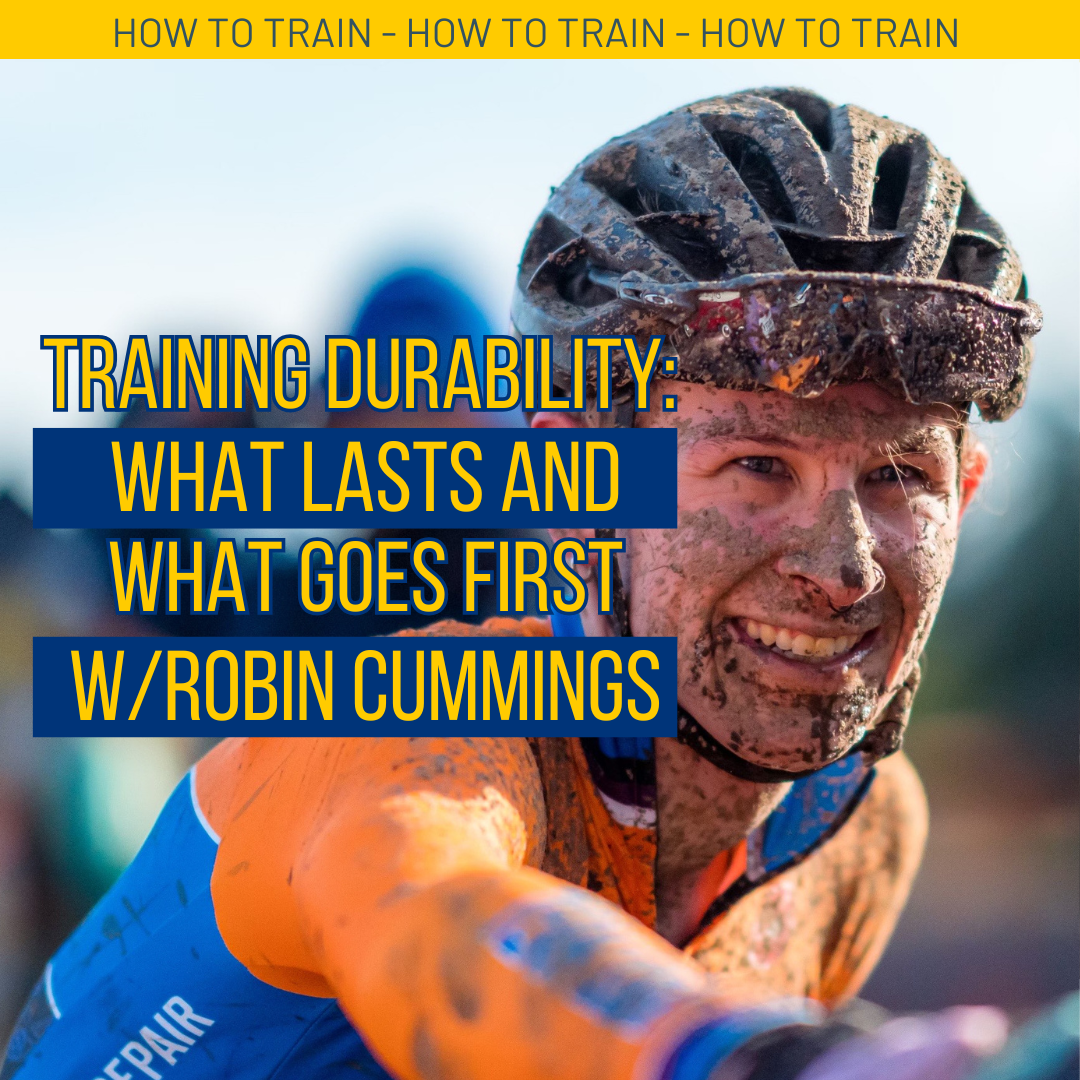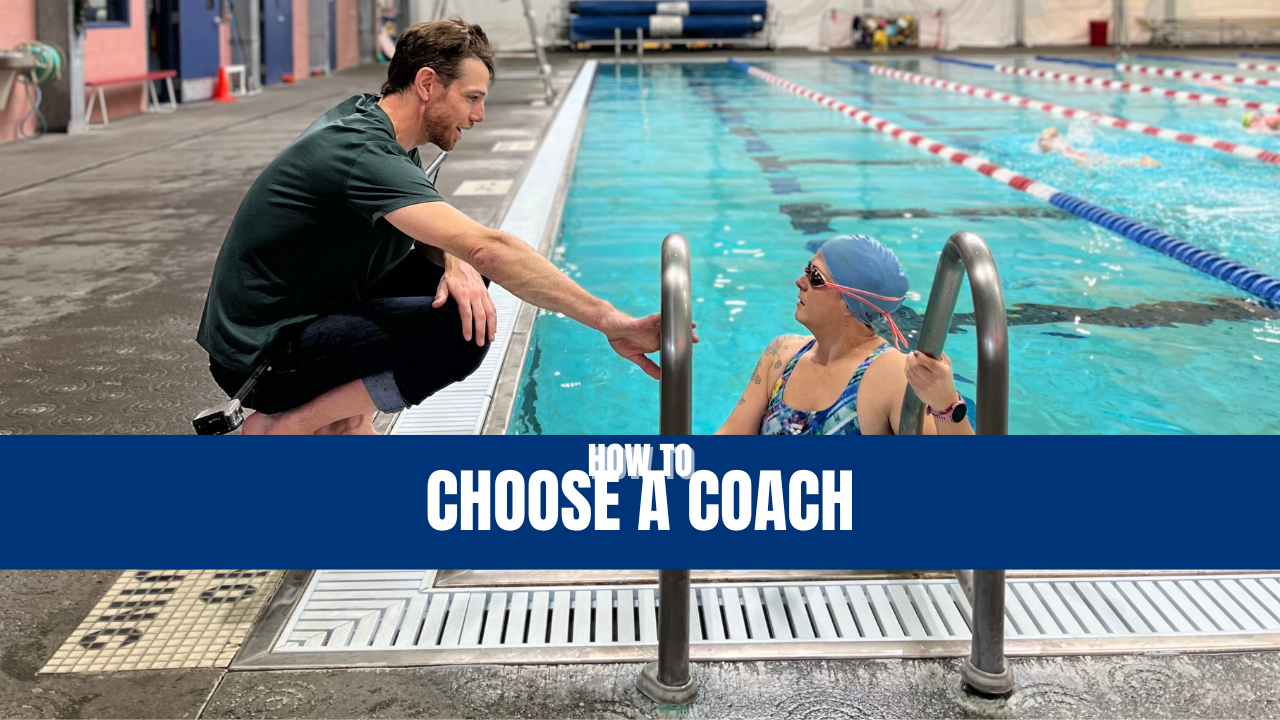
Episode 36: “The Bonfire of Success,” with World Class Coach David Tilbury Davis
David Tilbury-Davis coaches or has coached triathlon household names such as Ashleigh Gentile, Lionel Sanders, Skye Moench, Corinne Abraham, Cody Beals, and Matt Hanson, and he’s been doing so for three decades. In this episode, David explains his “evidence-led” in contrast to “evidence-based” approaches, how he gives athletes autonomy within structured training blocks, and why understanding your race day "poker hand" matters more than race-day magic. We discuss block periodization across the four disciplines of triathlon, how the Norwegian Method is more a product of excellent professionalism, cognitive load in VO2 work, and why even successful performances need analysis. In the moment I found most affecting, David talks about how an athlete deals with setbacks separates the great from the merely good.


Episode 28: Training Durability | What Sticks Around and What Disappears First
One of the athletes I work with, Robin Cummings, asked a deceptively simple question about heat training that opened up a much larger conversation: which training adaptations actually last, and which ones disappear the moment you stop training them? The answer reveals your body's efficient "last hired, first fired" approach to fitness —and changes how you should think about periodization.
In this coach-to-coach conversation, Robin, an elite cyclist and coach, and Chris break down the durability hierarchy that governs every training decision, from skills work that can last decades to altitude adaptations that vanish in two weeks. You'll learn why your body operates like a lazy but efficient accountant, maintaining only the adaptations it absolutely needs and dumping everything else the moment the metabolic cost gets too high.
You can find Robin @gender_deer on Instagram, where they post about their racing and where you can talk to them about coaching.

Episode 26: How to Choose the Triathlon Coach that Fits YOUR Goals
Choosing an endurance coach might be one of the most important decisions you'll make as an athlete, yet most people approach it completely backwards. This video episode of The Infirmary breaks down how to choose and endurance coach who matches your goals, communication style, and budget, because not everyone needs the same thing in a coaching relationship.
We start with the biggest but oft-ignored question: do you even need a coach in the first place? Some athletes thrive in community-focused training groups, while others need a personalized, data-driven approach that only comes from professional triathlon coaching. Understanding your values—what YOU think is important in your sport—determines everything about your coach search.
Your sporting values and needs should align with your coach's training philosophy. Are you looking for someone who'll craft completely customized training plans, or do you prefer a simple plan with slight modifications? We bring up some red flags to watch for, including coaches who just copy-paste their own training history onto every athlete they work with or push you to purchase their services on the first information call.
Whether you're looking for workout accountability, technical expertise, or someone to help you navigate the mental game, this episode gives you a framework to find exactly what you need without getting caught up in fancy marketing or credentials that don't actually matter for your specific situation.
You can find the article version of this episode here: https://www.campfireendurance.com/how-to-choose-a-triathlon-coach
And you can always book a free 45-minute training analysis here: https://www.campfireendurance.com/triathlon-coaching

Episode 20: Self-Coached vs. Coached: Finding Balance in Triathlon with Business Owner and Mom Annie Solonika
In this candid conversation with former Campfire athlete Annie Solonika, we dive into what really matters in the coach-athlete relationship from both perspectives. Annie shares how a strong coach-athlete relationship requires clear communication and expectations from the start. As both a successful triathlete and business owner of Full Circle Stretching, Annie offers unique insights on balancing triathlon training with work and family life, showing how proper coaching can help busy athletes maintain consistency.
We explore the differences between self-coaching and working with a coach, discussing how training structure and accountability contribute to athletic development. Annie explains that effective coaching isn't just about training plans, but about creating a supportive community that keeps athletes motivated through challenging periods. The conversation highlights how listening to your body becomes an essential skill for endurance athletes, with proper coach feedback helping athletes distinguish between normal fatigue and warning signs.
For coaches, this interview provides valuable perspective on what athletes truly value in a coaching relationship, while athletes will gain insights on how to communicate their needs effectively. Whether you're considering hiring a coach or looking to improve your existing coaching relationship, this discussion offers practical wisdom for triathlon training consistency and finding balance between athletic goals and life commitments.

Episode 15: The Norwegian Method with Author Brad Culp
Chris sits down with Brad Culp, author of the 2024 Book The Norwegian Method: The Culture, Science, and Humans Behind the Groundbreaking Approach to Elite Endurance Performance. After some book-nerd talk about the structure Brad and his publisher chose for the book (the first few chapters provide a brisk but necessary and engrossing history of Scandinavia’s Viking culture and boatbuilding technology), Culp explains what he sees as encompassing “The Norwegian Method.” He talks about Kristian Blummenfelt, Gustav Iten, Olav Aleksander Bu, Jakob Ingebrigtsen, and the other less well-known forebears of The Norwegian Method. Culp recounts what he saw while reporting on and then writing about some of the greatest endurance athletes of our moment, and talks about how amateur endurance athletes can incorporate some of these training strategies without hurting themselves.
You can pick up Brad’s book on Amazon, and find him over on X.
